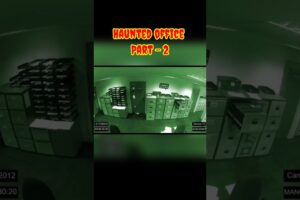This remarkable video captures some of the only genuine footage of the Titanic prior to it sinking, the rescue of survivors, and The Mackay Bennet leaving Halifax in search of the dead.
For Archive Licensing Enquiries Visit: https://goo.gl/W4hZBv
Explore Our Online Channel For FULL Documentaries, Fascinating Interviews & Classic Movies: https://goo.gl/7dVe8r
#BritishPathé #History #Titanic #Disaster
License This Film: (FILM ID:3468.07) http://www.britishpathe.com/video/titanic-disaster-1/
Subscribe to the British Pathé YT Channel: https://goo.gl/hV1nkf
NB: this film contains the only genuine footage of the Titanic held by British Pathe. There are slightly different versions of this film held by British Movietone and the National Film and Television Archive. There is a duplication of part of this footage on tape PM3478.
Gaumont newsreel which contains only known footage of the Titanic. Pathe have joint rights in this film with holders of Gaumont footage.
Introductory intertitle reads: “The `Titanic’ leaving Belfast lough for Southampton. There follows eight shots of the Titanic moored at Belfast – probably on April 2nd 1912. In several of the shots we see men walking beside the ship and smoke comes from the Titanic’s third funnel. The ship is not actually departing, the ship is virtually stationary through all shots.
Intertitle reads: “Before the disaster, Captain Smith on the Bridge.” C/U of Captain Edward J. Smith – he is actually on board the Olympic rather than the Titanic. Flashing intertitle reads: “C-Q-D Help! Help! We are sinking!” followed by another intertitle: “The Graveyard of the Sea – Icebergs and ice floes near the scene of the disaster.” Moving shot of some ice floes and icebergs.
“The Yacht Mary Scully going out to meet the Carpathia at sea.” The Mary Scully passes the camera. It has a banner along the side stating: “New York American Press Boat.” “The `Carpathia’ nearing New York with survivors.” Carpathia passes camera. “The Carpathia Docked” – boat seen beside quayside. “Captain Rostrum of the `Carpathia'”. M/S of a group of gentlemen standing on quayside. “Some survivors of Titanic’s crew” – M/S of half a dozen men – two wear White Star Line emblazoned jumpers. Two men talk. “Quartermaster Hitchens of the Titanic who went down with the ship and was afterwards picked up.” M/S of Hitchens talking to a policeman. “Father Hogue, a passenger of the Carpathia who first sighted the Titanic lifeboats.” Two shots of Father Hogue. “Some of the heroes of the Titanic’s crew picked up at sea.” Various shots of some of the crew who wear lifejackets. Two of the crew act out how one saved the other from drowning. “Reporters interviewing survivors.” C/U of group of journalists. “The crowd at the White Star offices New York awaiting news.” People crowd around the office and arrive and leave through revolving doors. “Scene at the Cunard Docks the morning after the Carpathia’s arrival.” Panning shot of the docks. “Marconi, whose marvelous discovery saved over 700 lives. C/U of Marconi and his wife (?) “The Mackay Bennet leaving Halifax in search of the dead.” Various shots of crew on board the Mackay Bennet.
BRITISH PATHÉ’S STORY Before television, people came to movie theatres to watch the news. British Pathé was at the forefront of cinematic journalism, blending information with entertainment to popular effect. Over the course of a century, it documented everything from major armed conflicts and seismic political crises to the curious hobbies and eccentric lives of ordinary people. If it happened, British Pathé filmed it. Now considered to be the finest newsreel archive in the world, British Pathé is a treasure trove of 85,000 films unrivalled in their historical and cultural significance.
British Pathé also represents the Reuters historical collection, which includes more than 136,000 items from the news agencies Gaumont Graphic (1910-1932), Empire News Bulletin (1926-1930), British Paramount (1931-1957), and Gaumont British (1934-1959), as well as Visnews content from 1957 to the end of 1984. All footage can be viewed on the British Pathé website. https://www.britishpathe.com/
source






